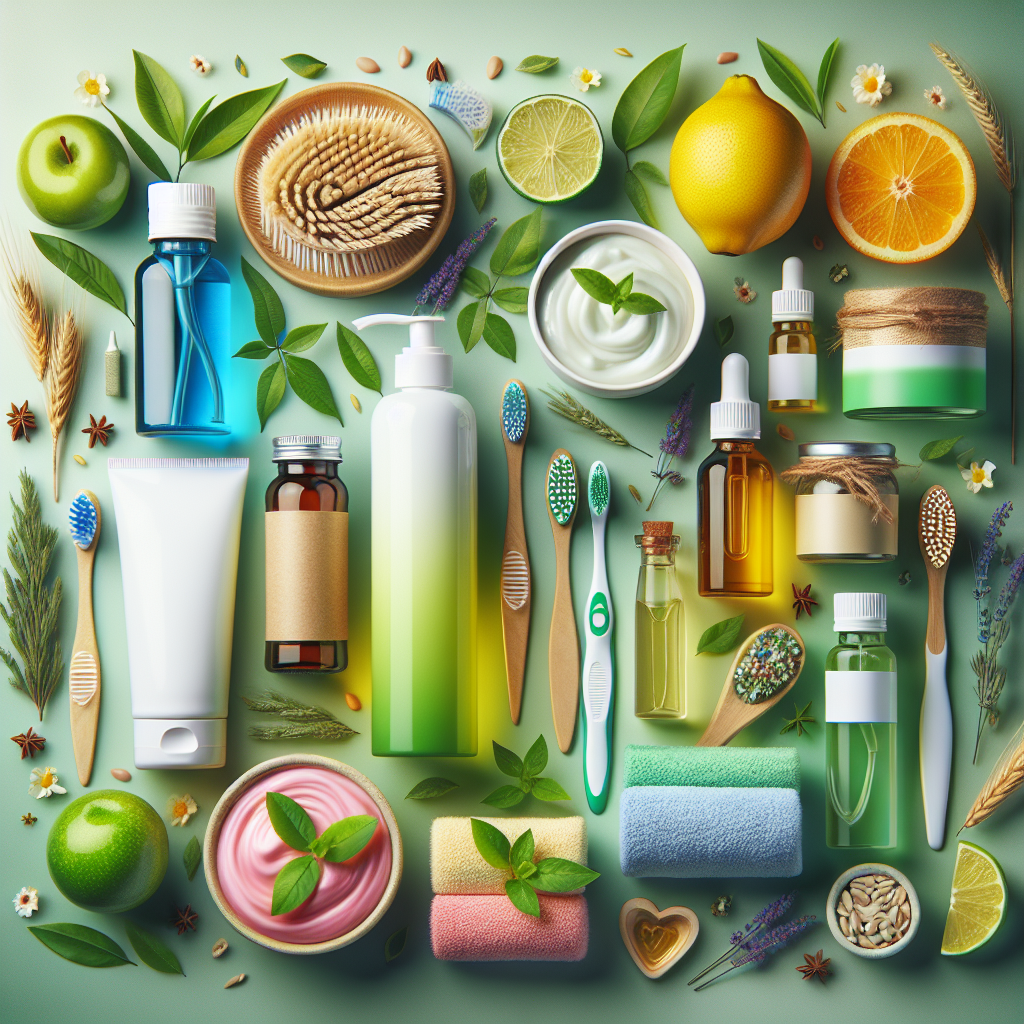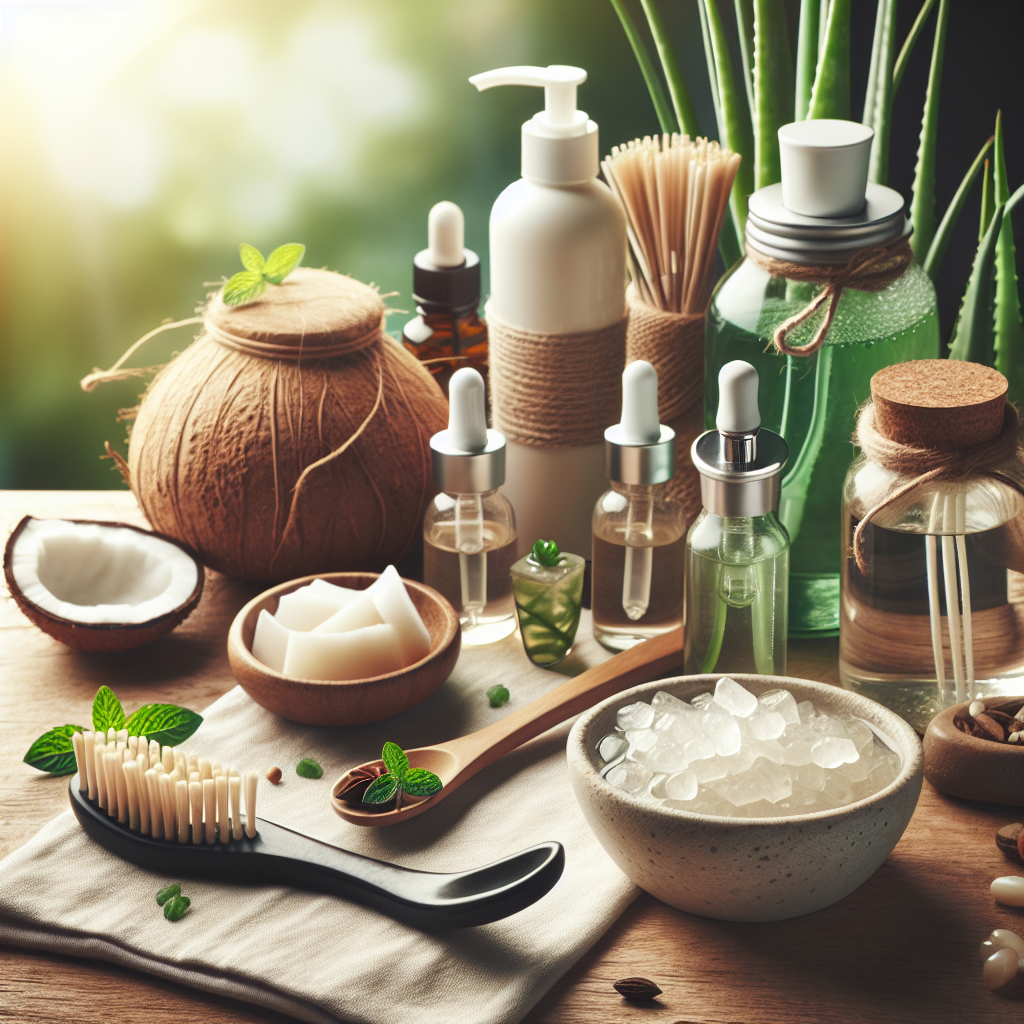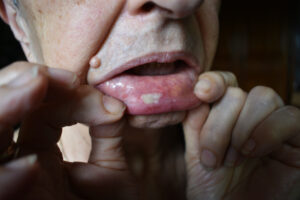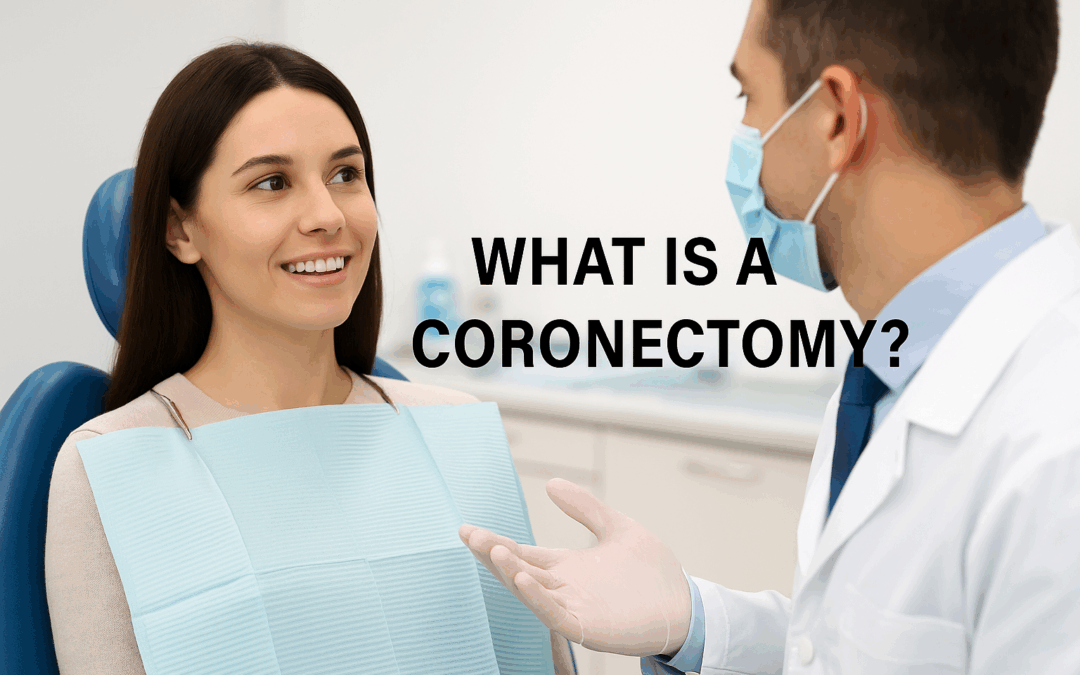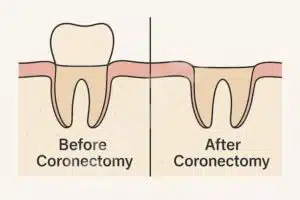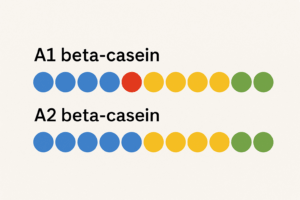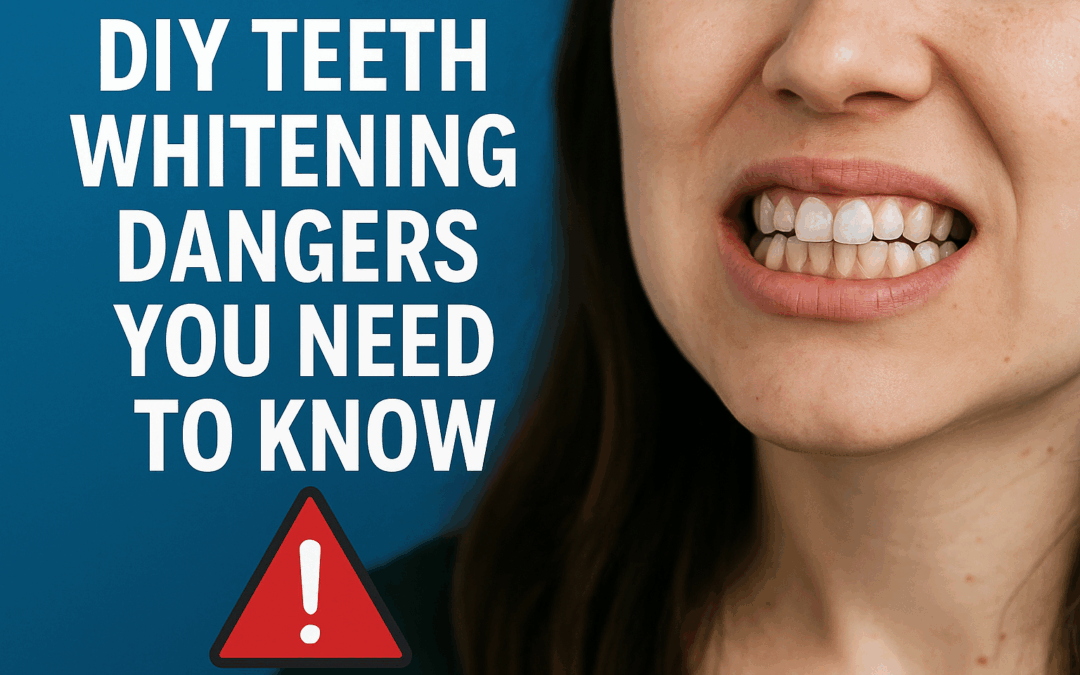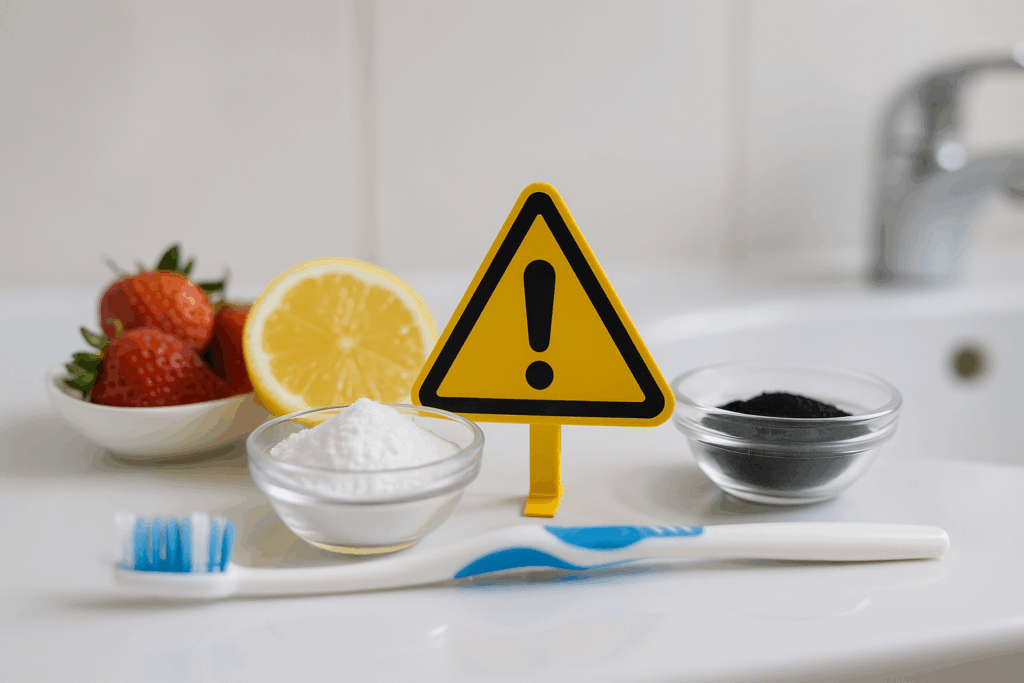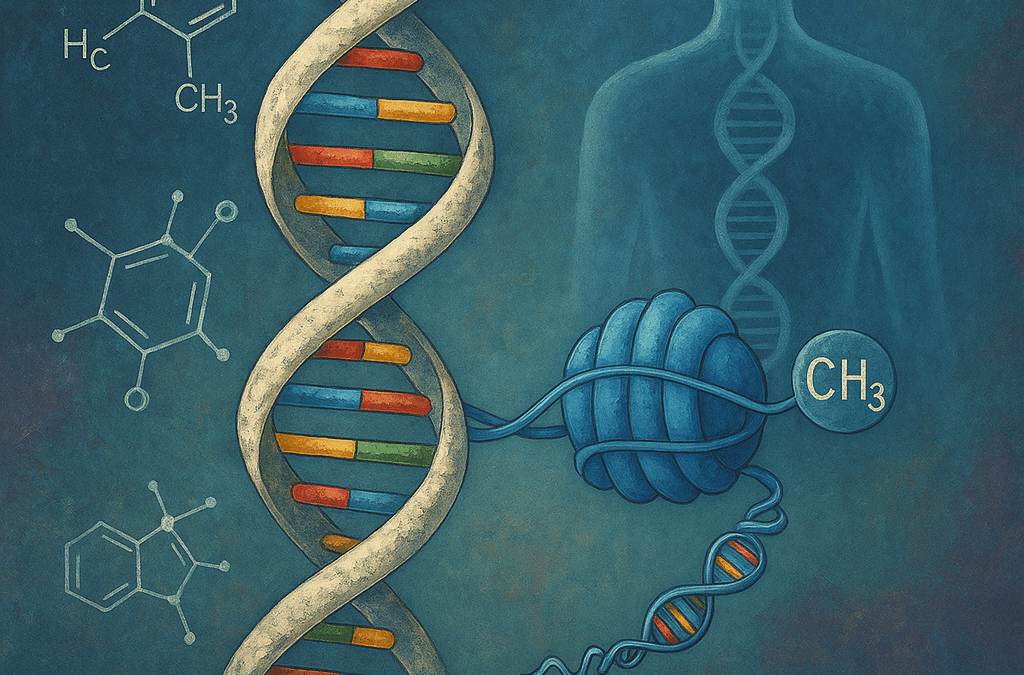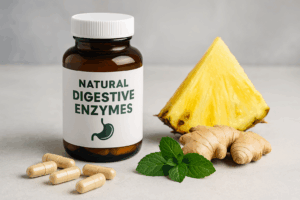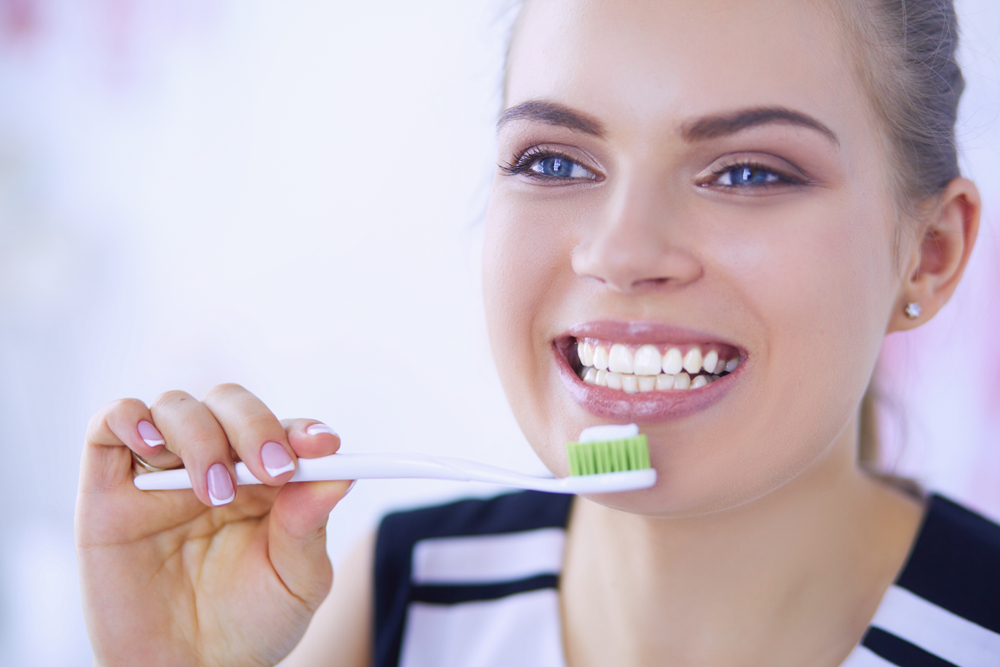
7 Effective Natural Oral Health Remedies That Work
Introduction to Natural Oral Health
Did you know that over 75% of dental products contain chemicals that can be harmful? It’s time to rethink our oral hygiene routine!
Importance of Natural Remedies in Dental Care
The importance of natural remedies in dental care cannot be overstated. With rising awareness about the dangers of certain additives, many are opting for holistic dental solutions. Think of it as swapping out your classic rock playlist for smooth jazz-both can be enjoyable, but one is a lot easier on the ears (and your body).
- Chemical-Free Options: Products like chemical-free toothpaste, fluoride-free mouthwash, and biodegradable toothbrushes are becoming household staples.
- Sustainable Practices: Eco-conscious brands are leading the charge with zero-waste oral hygiene supplies.
- Herbal Remedies: From using essential oils for oral care to DIY oral health remedies, nature has provided us with tools for maintaining our smiles.
Overview of Common Dental Problems
So, what dental issues can we tackle using these natural approaches? Here’s a quick rundown:
- Cavities: Instead of relying solely on traditional fillings, explore natural cavity prevention methods.
- Plaque Buildup: Employ natural plaque removal techniques, such as oil pulling with coconut oil or using homemade toothpaste recipes.
- Gum Health: Try herbal remedies for toothache relief or home remedies for gum health that can soothe inflammation and promote healing.
- Bad Breath: Ditch chemical-laden breath fresheners for safe and effective alternatives made from natural ingredients.
Connection Between Oral Health and Overall Wellness
The link between oral health and overall wellness is like peanut butter and jelly-perfectly paired! Poor dental hygiene can lead to serious health issues beyond just bad breath. Studies suggest that bacteria from gum disease can enter the bloodstream, potentially affecting heart health. By adopting a regimen focused on preventive dental care we not only improve our smiles but also support our bodies’ well-being.
This holistic approach encourages us to think critically about what we put into our bodies. Are those mainstream products really doing more good than harm? With options like probiotic oral health supplements, which promote healthy bacteria in your mouth, or even Ayurvedic dental care practices, there’s plenty to explore!
The journey toward embracing natural oral health is both exciting and empowering. As more people become aware of the benefits of eco-friendly dental products, we’re seeing a shift towards safer alternatives that respect both personal health and environmental sustainability. So grab your biodegradable toothbrush and let’s dive deeper into how we can tackle common dental problems naturally!
Cavities: Prevention and Natural Remedies
Understanding Cavities and Their Causes
Cavities are like unwanted party crashers in your mouth, sneaking in when you least expect them. They occur when bacteria in your mouth produce acids that erode tooth enamel, leading to decay. This can be caused by a variety of factors, including:
- Poor Oral Hygiene: Neglecting regular brushing and flossing can create a haven for bacteria.
- Diet High in Sugars: Those candy bars and sodas might be delicious, but they’re also cavity magnets.
- Dry Mouth: Saliva helps neutralize acids; without it, your teeth can suffer.
- Acidic Foods and Drinks: Citrus fruits and sodas can wear down enamel over time.
Natural Prevention Methods
The best offense is a good defense! Here are some natural oral health strategies to keep cavities at bay:
- Regular Brushing: Use chemical-free toothpaste that contains natural ingredients like baking soda or activated charcoal for gentle cleaning.
- Floss Daily: Don’t skip this step! Flossing helps remove food particles that brushing might miss.
- Mouth Rinses: Opt for a natural mouth rinse, such as one made with essential oils, to combat bacteria without harsh chemicals.
- Sugar-Free Gum: Chewing xylitol gum can help stimulate saliva production and reduce cavity-causing bacteria.
A study published in the Journal of Dental Research found that regular use of xylitol can reduce cavities by up to 70%!
Note of Caution: Xylitol and Heart Health
While xylitol’s cavity-reducing benefits are well documented, recent research suggests we should use it judiciously—particularly in large doses.
- A major study published in the European Heart Journal found that individuals with the highest xylitol levels in their blood had about double the risk of heart attack, stroke, or death over a three-year period compared to those with the lowest levels.
- Mechanistic studies showed that xylitol increased platelet sensitivity in both human and animal models—making blood clotting more likely, a potential trigger for cardiovascular events.
- These findings are associative, not definitive—and some reviews emphasize the need for more research before drawing firm conclusions.
- In holistic communities especially cautious around any potential health risk, it’s reasonable to moderate xylitol intake—favoring small, targeted use (like in toothpaste or gum) over larger dietary doses.
Summary: Yes, xylitol helps prevent cavities—but high systemic exposure may carry cardiovascular concerns. Modest use—as part of a wider natural oral health plan—is the most balanced approach.
Home Remedies for Early-Stage Cavities
If you catch cavities early, there’s hope! Here are some DIY oral health remedies that may help reverse early-stage decay:
- Nutrient-Rich Diet: Incorporate foods rich in calcium and phosphorus, like leafy greens and nuts, to help remineralize teeth.
- Coconut Oil Pulling: Swishing coconut oil around your mouth can help draw out toxins and bacteria while promoting overall oral hygiene.
- Homemade Toothpaste Recipes: Mix baking soda with coconut oil and essential oils for a natural toothpaste alternative that fights cavities effectively.
- Aloe Vera Gel: Applying aloe vera directly to the affected area may aid healing due to its antibacterial properties.
The journey toward natural oral care is both empowering and effective. By adopting these practices, you’re not just treating cavities but also embracing a healthier lifestyle. Remember, prevention is key-so start implementing these strategies today!
If you suspect you’re facing cavity issues, schedule a visit with your holistic dentist to discuss the best course of action tailored just for you!
Gum Disease: Symptoms and Treatment Options
Types of Gum Disease
Gum disease comes in two main flavors: gingivitis and periodontitis. Think of gingivitis as the warning light on your car dashboard; it tells you something’s off before it escalates into a full-blown engine failure (a.k.a. periodontitis).
- Gingivitis: The early stage, often characterized by red, swollen gums that bleed during brushing. It’s like that annoying friend who keeps showing up uninvited, but with a little attention, you can send them packing!
- Periodontitis: If gingivitis is left untreated, it can progress to periodontitis. This is when the inflammation spreads deeper into the supporting structures of the teeth, leading to potential tooth loss. It’s like ignoring that friend until they start crashing your parties-definitely not fun!
Signs and Symptoms to Watch For
So how do you know if your gums are throwing a tantrum? Here are some classic signs:
- Bleeding Gums: If your gums bleed when brushing or flossing, that’s a red flag waving at you!
- Persistent Bad Breath: If minty freshness doesn’t seem to last long enough, gum disease might be the culprit.
- Swollen or Tender Gums: If your gums feel more like jelly than firm tissue, it’s time to take action.
- Receding Gums: If your teeth look longer than usual or your gums seem to be shrinking away from your teeth, don’t ignore this sign.
A study from the American Academy of Periodontology found that nearly 50% of adults over 30 have some form of gum disease!
Natural Treatments for Gum Disease Management
The good news is that managing gum disease doesn’t have to involve harsh chemicals or invasive procedures. Here are some natural treatments for gum disease management:
- Herbal Oral Hygiene: Incorporate rinses made from herbal ingredients like sage or chamomile. These can help soothe inflammation and promote healing.
- Coconut Oil Pulling: Swishing coconut oil can help reduce bacteria in the mouth while providing a gentle cleanse.
- Nutrient-Rich Diet: Eating foods high in vitamins C and D can bolster gum health. Think leafy greens and citrus fruits-your gums will thank you!
- Diy Natural Mouth Rinse: Create a mouth rinse using water mixed with essential oils like tea tree oil for its antibacterial properties.
- Aloe Vera Gel: Applying aloe vera directly to inflamed gums can help reduce swelling and promote healing thanks to its soothing properties.
The journey toward natural oral health, particularly with regards to gum disease, is all about consistency and care. By integrating these holistic dental solutions into your routine, you’re not just addressing symptoms but also enhancing your overall well-being.
If you’re experiencing any signs of gum disease, it’s crucial to consult with a holistic dentist who can guide you through tailored treatment options that align with natural oral care principles. Your smile deserves it!
Tooth Sensitivity: Causes and Home Solutions
Common Causes of Tooth Sensitivity
Tooth sensitivity can feel like a surprise ice bath for your teeth, catching you off guard when you sip that hot coffee or bite into a cold scoop of ice cream. But what causes this discomfort? Here are some common culprits:
- Worn Enamel: Over time, the protective layer of enamel can wear down due to aggressive brushing or acidic foods.
- Gum Recession: When gums pull back, they expose the sensitive roots of your teeth, leading to discomfort.
- Cracked Teeth: Cracks can harbor bacteria and lead to inflammation, making your pearly whites more sensitive.
- Dental Procedures: Recent treatments like fillings or whitening can temporarily heighten sensitivity.
Natural Remedies to Alleviate Discomfort
If you’re tired of feeling like your teeth are auditioning for a horror movie every time you eat or drink, fear not! Here are some natural oral health remedies that may help alleviate tooth sensitivity:
- Desensitizing Toothpaste: Look for toothpaste formulated for sensitive teeth; these often contain potassium nitrate to help block pain signals.
- Coconut Oil Pulling: Swishing coconut oil around in your mouth can help reduce bacteria and soothe inflammation.
- Nutrient-Rich Foods: Incorporate foods rich in calcium and phosphorus, like almonds and leafy greens, to support enamel health.
- Aloe Vera Gel: Applying aloe vera directly to sensitive areas may provide soothing relief due to its anti-inflammatory properties.
- Homemade Mouth Rinse: Mix water with essential oils like peppermint or tea tree oil for a refreshing rinse that may also help with sensitivity.
A study found that using desensitizing toothpaste consistently can reduce sensitivity by up to 50% over time!
Lifestyle Changes to Prevent Sensitivity Issues
The journey towards natural oral care doesn’t stop at remedies; lifestyle changes play a crucial role too. Here are some strategies to keep tooth sensitivity at bay:
- Mild Brushing Technique: Switch to a soft-bristled toothbrush and brush gently. Think of it as giving your teeth a gentle hug instead of a wrestling match!
- Avoid Acidic Foods: Limit consumption of citrus fruits and sodas that can erode enamel. Instead, reach for alkaline foods like bananas and avocados.
- Sipping Through a Straw: When enjoying acidic drinks, use a straw to minimize contact with your teeth. Your smile will thank you!
- If You Grind Your Teeth: Consider using a night guard if you grind your teeth while sleeping; it’s like giving your teeth their own protective armor!
The path towards holistic dental solutions, particularly for tooth sensitivity, is about understanding the root causes and taking proactive steps. By implementing these natural strategies today, you’re not just alleviating discomfort but also investing in the long-term health of your smile!
If tooth sensitivity persists despite trying these remedies, don’t hesitate to consult with a holistic dentist who can provide tailored advice based on natural oral care principles. Your comfort is worth it!
Mouth Sores: Identification and Relief Strategies
Types of Mouth Sores
Mouth sores can be a real pain, quite literally! They come in various forms, with the most common being canker sores and cold sores. Understanding the differences can help you tackle them more effectively.
- Canker Sores: These pesky little ulcers appear inside your mouth, often triggered by stress, hormonal changes, or certain foods. They’re like uninvited guests that stick around longer than you’d like!
- Cold Sores: Caused by the herpes simplex virus, these blisters usually pop up on the lips or around the mouth. Think of them as that annoying pop star who keeps reappearing on your playlist when you just want some peace and quiet.
- Angular Cheilitis: It refers to painful cracks or sores at the corners of the mouth. Many people experience it without knowing the name—it’s often linked to dryness, ill-fitting dentures, fungal infection, or nutritional deficiencies.
Nutritional Considerations for Prevention
Your diet plays a crucial role in preventing mouth sores. Here are some nutritional tips to keep those pesky sores at bay:
- Stay Hydrated: Water is your best friend! Keeping hydrated helps maintain a healthy oral environment.
- Avoid Trigger Foods: Spicy, acidic, or rough-textured foods can irritate your mouth and lead to sores. Think of them as the troublemakers at a party; it’s best to keep them away!
- Nutrient-Rich Foods: Incorporate foods rich in vitamins B12, C, and iron. These nutrients support healing and overall oral health. Snack on leafy greens, nuts, and citrus fruits for a boost!
A study found that individuals who consume adequate amounts of vitamin B12 are less likely to experience recurrent canker sores.
For angular cheilitis:
-
- Moisturize & Protect: Applying plain lip balm or natural oils like coconut oil can help keep the area hydrated.
- Aloe Vera or Honey: Both have soothing and antimicrobial properties that may support healing.
- Nutritional Support: Deficiencies in iron or B vitamins are sometimes contributors. Consider correcting these with diet or oral health supplements.
Behavioral Tips: Avoid frequent licking of the lips, which can worsen irritation.
If you’re already dealing with mouth sores, don’t fret! Here are some natural remedies that may provide relief:
- Aloe Vera Gel: Applying aloe vera directly to the sore can soothe irritation thanks to its anti-inflammatory properties. It’s like giving your mouth a calming spa day!
- Salt Water Rinse: Gargling with warm salt water can help reduce inflammation and promote healing. Just mix one teaspoon of salt in a glass of warm water-easy peasy!
- Baking Soda Paste: Create a paste using baking soda and water; apply it directly to the sore for relief from pain and irritation.
- Coconut Oil Swishing: Swishing coconut oil around in your mouth not only helps with moisture but also has antimicrobial properties that may aid healing.
- Echinacea Tea: Drinking echinacea tea may boost your immune system while soothing inflammation-two birds with one soothing stone!
The journey toward natural oral health, particularly when it comes to mouth sores, is all about prevention and care. By implementing these strategies today, you’re not just alleviating discomfort but also investing in long-term oral wellness.
If mouth sores persist or become frequent, consider consulting with a holistic dentist who can provide tailored advice based on natural oral care principles. Your comfort is worth it!
Bad Breath: Causes and Natural Solutions
Understanding the Causes of Bad Breath (Halitosis)
Bad breath, or halitosis, is like that awkward moment when you realize your favorite food has left its mark on your breath. But what causes this less-than-pleasant phenomenon? Here are some common culprits:
- Poor Oral Hygiene: Neglecting to brush and floss regularly allows food particles and bacteria to thrive, leading to unpleasant odors.
- Diet Choices: Foods like garlic, onions, and certain spices can linger in your mouth long after you’ve eaten them.
- Dry Mouth: Saliva plays a crucial role in washing away food particles; a lack of it can lead to bad breath.
- Underlying Health Issues: Conditions such as gum disease, sinus infections, or even diabetes can contribute to persistent bad breath.
Natural Practices to Improve Breath Freshness
If you’re ready to kick bad breath to the curb, here are some natural oral health practices that can help freshen things up:
- Stay Hydrated: Drinking plenty of water helps keep your mouth moist and washes away food particles. Think of it as giving your mouth a refreshing shower!
- Herbal Mouth Rinse: Create a natural mouth rinse using essential oils like peppermint or tea tree oil. Just mix a few drops with water for a refreshing boost.
- Coconut Oil Pulling: Swishing coconut oil around in your mouth for about 10-15 minutes can help remove bacteria and improve overall oral hygiene.
- Nibbling on Fresh Herbs: Chewing on parsley or mint leaves not only freshens your breath but also provides a burst of flavor!
A study found that using essential oils in oral care can significantly reduce bacteria responsible for bad breath!
The Role of Diet in Oral Odor Control
Your diet plays a pivotal role in managing bad breath. Here are some dietary tips to consider:
- Avoid Odorous Foods: Limit consumption of strong-smelling foods like garlic and onions if you’re concerned about breath freshness.
- Add Crunchy Fruits and Veggies: Apples, carrots, and celery are not only healthy snacks but also act as natural toothbrushes that help scrub away debris.
- Dairy Products: Incorporating yogurt into your diet can promote healthy bacteria in your mouth, combating bad breath-causing germs.
- Sugar-Free Gum or Mints: Chewing sugar-free gum can stimulate saliva production, which naturally cleanses the mouth and freshens breath.
The key takeaway here is that maintaining natural oral care, particularly through mindful eating habits, can significantly impact how fresh your breath smells. By being conscious of what you consume and incorporating these natural solutions into your routine, you’ll be well on your way to enjoying fresher breath every day!
If bad breath persists despite these efforts, consider consulting with a holistic dentist who can help identify any underlying issues affecting your oral health. Your smile deserves the best!
The Role of Diet in Oral Health Maintenance
When it comes to maintaining natural oral health, your diet plays a starring role. Imagine your mouth as a garden; what you feed it determines whether it flourishes or wilts. A well-balanced diet rich in essential nutrients can keep your teeth and gums healthy, while a poor diet can lead to all sorts of dental dilemmas.
Nutrients Essential for Healthy Teeth and Gums
Just like superheroes need their powers, your teeth rely on certain nutrients to stay strong and healthy. Here are some key players:
- Calcium: This mineral is the backbone of your teeth. Found in dairy products, leafy greens, and fortified plant-based milks, calcium helps maintain strong enamel.
- Vitamin D: Think of vitamin D as the sidekick that helps calcium do its job! It enhances calcium absorption and can be found in fatty fish and fortified foods.
- Phosphorus: Essential for tooth enamel repair, phosphorus works hand-in-hand with calcium. You can find it in nuts, seeds, and whole grains.
- Vitamin C: This vitamin is crucial for gum health. It helps maintain connective tissue and fights inflammation. Load up on citrus fruits, strawberries, and bell peppers!
- B Vitamins: These vitamins support overall oral health by promoting good blood flow to the gums. Get your fill from whole grains, legumes, and leafy greens.
Foods to Include for Optimal Oral Health
If you want to nourish your smile naturally, here’s a list of foods that deserve a spot on your plate:
- Dairy Products: Yogurt and cheese not only provide calcium but also promote saliva production-which is nature’s way of keeping bacteria at bay!
- Crispy Fruits and Vegetables: Apples, carrots, and celery act as natural toothbrushes while providing crunch-tastic fiber that scrubs away food particles.
- Nuts and Seeds: These little powerhouses are rich in healthy fats and minerals that support tooth strength-plus they make great snacks!
- Green Tea: Packed with antioxidants called catechins, green tea may help reduce inflammation in the gums while fighting bad breath.
- Fatty Fish: Salmon and mackerel are loaded with omega-3 fatty acids that help combat gum disease by reducing inflammation.
A study published in the Journal of Clinical Dentistry found that diets rich in fruits and vegetables are associated with healthier gums!
The journey towards natural oral care, especially through dietary choices, is both rewarding and delicious! By incorporating these nutrient-rich foods into your meals, you’re not just feeding your body-you’re also nurturing your smile.
If you’re looking for ways to improve your diet for better oral health or need personalized advice on holistic dental solutions, consider scheduling a consultation with a holistic dentist who understands the connection between nutrition and dental wellness. Your smile-and body-will thank you!
The Importance of Regular Dental Check-ups alongside Natural Remedies
When it comes to maintaining natural oral health, think of regular dental check-ups as your trusty sidekick in the superhero world of teeth care. While natural oral care methods like herbal oral hygiene and chemical-free toothpaste are fantastic for daily maintenance, having a professional on your team is crucial for spotting issues that you might miss.
Balancing Natural Care with Professional Advice
The beauty of modern dentistry lies in its ability to blend traditional practices with innovative solutions. Here’s how you can strike that perfect balance:
- Regular Visits: Schedule check-ups every six months to catch potential problems early. Think of it as a routine tune-up for your smile!
- Communicate Openly: Discuss your use of natural remedies and preferences with your dentist. This helps them tailor their advice and treatment options to suit your needs.
- Stay Informed: Keep up with the latest trends in holistic dental solutions. Knowledge is power, especially when it comes to choosing the right products for your oral care routine.
A study found that patients who combine regular dental visits with natural remedies tend to experience fewer dental issues overall!
How to Choose a Holistic Dentist
Selecting the right dentist is like picking the perfect avocado at the store-it requires a little finesse! Here are some tips to ensure you find a holistic dentist who aligns with your values:
- Research Credentials: Look for dentists who have training in holistic practices or alternative therapies. They should be well-versed in both traditional and natural methods.
- Seek Recommendations: Ask friends or family about their experiences with holistic dentists. Personal referrals can lead you to hidden gems!
- Evaluate Their Approach: During consultations, inquire about their stance on natural plaque removal techniques, use of non-toxic products, and overall treatment philosophy.
- Check Reviews: Online reviews can provide insights into patient satisfaction and their experiences with specific dentists.
A survey revealed that patients who prioritize holistic approaches often report higher satisfaction levels with their dental care!
When to Seek Professional Help for Dental Issues
Your mouth may be sending out distress signals, but how do you know when it’s time to call in the professionals? Here are some signs that warrant a visit to your holistic dentist:
- Persistent Pain: If you’re experiencing toothaches or gum pain that doesn’t subside, it’s time for a professional evaluation.
- Sensitivity Changes: Sudden changes in tooth sensitivity could indicate deeper issues requiring expert attention.
- Mouth Sores or Irritation: If sores linger longer than usual or if you’re experiencing unexplained irritation, don’t hesitate to seek help.
- Bleeding Gums: Regular bleeding during brushing or flossing can signal gum disease, which needs prompt care!
Your journey toward optimal natural oral health, while embracing both natural remedies and professional guidance, is essential for maintaining not just a radiant smile but also overall wellness. So keep those appointments, communicate openly with your dentist, and enjoy exploring the world of natural dental care!
